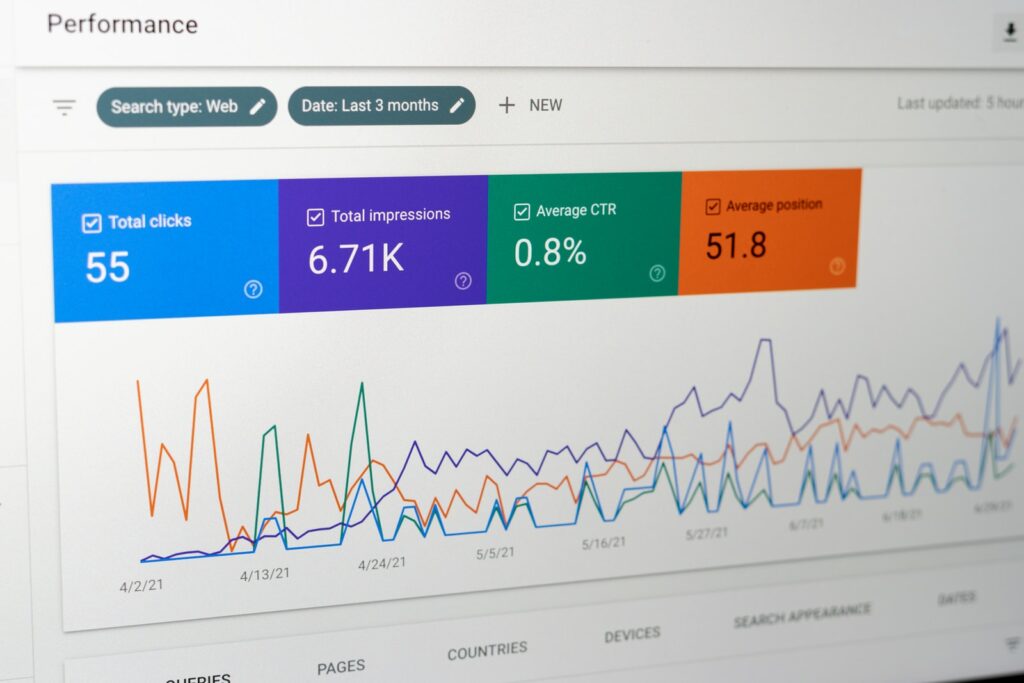What do you know about SEO? I’m guessing not much. It’s okay; most people don’t. You can still write an article on how to rank higher in Google’s search engine. All it takes is some simple tips and tricks for writing content that will be seen by the engines as high quality. The more people read your article, the better your chance of ranking higher on Google’s search engine!
This article will cover the following:
- Tips for writing high-quality content
- SEO: The easy, simple steps to rank higher on Google’s search engine.
- Want to rank higher on Google’s search engine? Follow these easy steps!
- SEO: don’t let it intimidate you. See how easy it is!
- What not to do when writing for the web (and what you should do!)
- Is your blog missing out on potential visitors? Here are some tips to help you rank higher on Google’s search engine!
Introduction
What do you know about SEO? I’m guessing not much. It’s okay; most people don’t. You can still write an article on how to rank higher in Google’s search engine. All it takes is some simple tips and tricks for writing content that will be seen by the engines as high quality. The more people read your article, the better your chance of ranking higher on Google’s search engine!

Lets get started!
1. Tips for writing high-quality content
Write in short sentences and a casual tone. Avoid using big words when small ones will do! Use pictures, infographics, and videos to draw attention to your article. Make it interesting! Get people excited about your writing by making it fun, easy to read (and skim!), and exciting. Use bullet points to break up your article. It makes it easier on the eyes, for one! And people will be able to scan your article if they’re looking for specific information.

Use active voice. It’s more of a common sense tip, but it’s important! When you write using active voice, it makes your article sound less passive. Active voice is when the subject of the sentence acts as the verb, whereas passive voice is when you have an object acted upon by a verb. For example, instead of “The ball was kicked by the girl”, you would write “The girl kicked the ball.” The first sentence sounds passive because the object is being acted upon rather than acting.
2. SEO: The easy, simple steps to rank higher on Google’s search engine
People visiting your blog will be interested in what you have to say. If they’re interested in what you have to say and visit your blog regularly, they’ll tell their friends about it! It’s all a cycle: people come to read your articles and share them with others, who then visit your site and so on. The more high-quality content people read, the more they share it with others!

Need to learn about SEO? Don’t worry; you don’t need to be an expert. You have to follow these simple steps:
- Write in short sentences and a casual tone.
- Avoid using big words when small ones will do!
- Use pictures or videos for your article so that people are more likely to share it with others.
- Use bullet points so that it is easier on the eyes and for people to read if they are looking for specific information.
- Remember, active voice!
3. Want to rank higher on Google’s search engine? Follow these easy steps!
While we are still determining what Google’s search algorithm is, we know it factors in various things. These include content quality, page load speed, relevance to the user query and social engagement. We’ve identified numerous on-page SEO optimizations that can help you create a better experience for your website visitors and improve your rankings on Google.
Do you want to rank higher on Google’s search engine? Follow these easy steps.
– Use a keyword-rich title, a meta description and a meta tag. Any site with a strong SEO will go a long way in improving its rankings. You can also do this by looking at various websites and checking how they have their titles, descriptions and tags set up so that the articles are more informative and appealing to readers.
– Aim for relevance. To rank higher on Google’s search engine, you need to ensure that your article’s content is relevant to the keywords you selected. The more relevant content you have on your site, the better your chances of success when ranking higher on search engines.
– Keywords are important when you want to make your site more visible on Google’s search engine as the ones that come up first in their list will be those with the most specific keywords, and therefore, they would be more relevant to what people may be looking for at that time.
– Keep content fresh. To attract new readers, you need to add fresh new content regularly. In addition, this will also help you rank higher in the search engine results list because even if your site doesn’t have strong keywords, it will still be relevant enough to make its way up in the top rankings.
– Make sure you have a clean, aesthetically-pleasing design so that people who come across your website will enjoy browsing through it. Make sure to keep colours and page layouts straightforward too.
– Strong social media engagement is another way to get more visitors to your site. You can do this by getting active on social media sites such as Facebook, Twitter and LinkedIn, as well as other similar sites.
SEO: don’t let it intimidate you. See how easy it is!
About a year ago, I started my first blog, onastore.in – I named it in honour of the “S” in SEO. I had never done anything with web design before, and although I knew some rudimentary HTML, I needed to learn more about search engine optimization (SEO). However, after putting in some effort, I stumbled on the “trick” and started to see traffic come to our site from search engines. I am a ranked amateur in the SEO world. Still, today I want to share some of my basic lessons and experiences with you so that if you’re thinking about starting your own website/blog – or trying to understand how this whole thing works – you can start on the right foot.

Here’s an example of a Google search for “blogger networking tools” – there are some pretty cool results here:
That list is just the beginning, and although I’m not going to go into details about how to get your site listed, I will say this: be patient. The Google algorithm is a pretty complex piece of software, and there’s no one secret that you can do and suddenly be at the top of every page. Two things always help, however:
1) Content- This should go without saying, but what are you doing there if you’re not creating useful content on your site? If you’re trying to get attention from search engines, put effort into writing good things about what you do. It’s great if you can post high-quality content regularly (and I don’t mean like every two months) and add some new information to your site periodically. Remember, you’re trying to get people to read what you have to say and the search engines.
2) Backlinks- This is pointing other websites to yours. Backlinks are typically accomplished by writing blog posts or articles that link to your site. The more quality sites that point to you, the better your chance of getting noticed by Google. It’s like advertising but free.
SEO is pretty easy once you get the hang of it, and although there are always new things to learn, if you keep these two main ideas in mind, you’ll be able to create a site that people love to visit – and search engines can’t resist.
> How to Create a Killer Content Strategy in 5 Steps
What not to do when writing for the web (and what you should do!)
A while ago, our team sat down and thought about what we did wrong when writing copy and how we could improve. We did some soul-searching and came up with the following list:
1.Avoid jargon and industry-specific language
Remember that only some people are rocket surgeons (Or electrical engineers). Most of your readers probably don’t know what a rocket surgeon is. You should assume that most of your readers have little industry experience and instead write to them as if you were talking to a friend or a child. You can be informative or technical when necessary, but include explanations for those terms your readers are unlikely to understand.
2.Only write short, stodgy documents.
In most cases, people only have endless hours to read through your writing that they will fully comprehend. Keep your paragraphs short and avoid using complex wording when possible. If you describe a process with several steps, consider adding a link to a webpage containing the steps in order or creating an illustration of the process.
3.Write as you talk
This may seem like it goes without saying, but far too often, people write as if they were writing an academic paper instead of writing for their readers. Shorten sentences and avoid overly complex wording. If you find yourself using industry jargon, acronyms, or overly formal language – re-work your sentence to remove these words and make it easier for the reader to understand.
> How much does it cost to learn SEO writing?
Is your blog missing out on potential visitors? Here are some tips that will help you rank higher on Google’s search engine!
When it comes to improving your blog’s rankings on Google, you have to consider many different factors. On the one hand, these factors include the quality and relevance of your content – they determine whether or not people will share your posts with their friends and family, which in turn influences your number of visitors. But on the other hand, there are also factors that you can control yourself, determining how many people will find your blog when they search for certain keywords.
While the quality of your content is very important, it takes time to resonate with audiences, which is why you want to improve your blog’s rankings as soon as possible. Here are our top tips for doing just that.
1.Utilize Your Keywords At the Right Places
If you are still getting familiar with the concept of keyword density, it is how often a specific word or phrase appears on your blog post compared to its total number of words. The main purpose of having keywords is to make it easier for search engines to understand what your post is all about.
2.Write Original Content
While it is true that search engines will reward you for having unique content, they also punish websites that copy other people’s content. Since these automated programs usually don’t detect plagiarism properly, writing your own content is the only way to avoid this penalty. There are some very simple ways of doing this; for example, you can try summarizing other people’s research.
3.Structure Your Content
If you want to be successful with your content marketing strategy, then you have to spend some time learning about how people find articles online. Since most people are impatient and don’t read full articles anymore, your content must be easily digestible. You can do this by using subheadings, bullet points, and paragraphs that are short and concise.
4.Don’t Forget About Your Images
Images can significantly influence the number of people who will visit your blog. Since search engines crawl through text, you must add alt tags with keywords to ensure they also see your images. Also, try using different types of images, such as infographics.
Conclusion
The tips are just a few ways to rank higher on Google’s search engine. However, remember that we will need more than simply implementing these principles to reach your goals alone – they need to be combined with an SEO strategy and content marketing plan for your blog. If you’re looking for help developing or optimizing either one of these strategies, let us know! Our team is experienced in helping companies increase their organic traffic through digital advertising campaigns. What other tips would you suggest?

